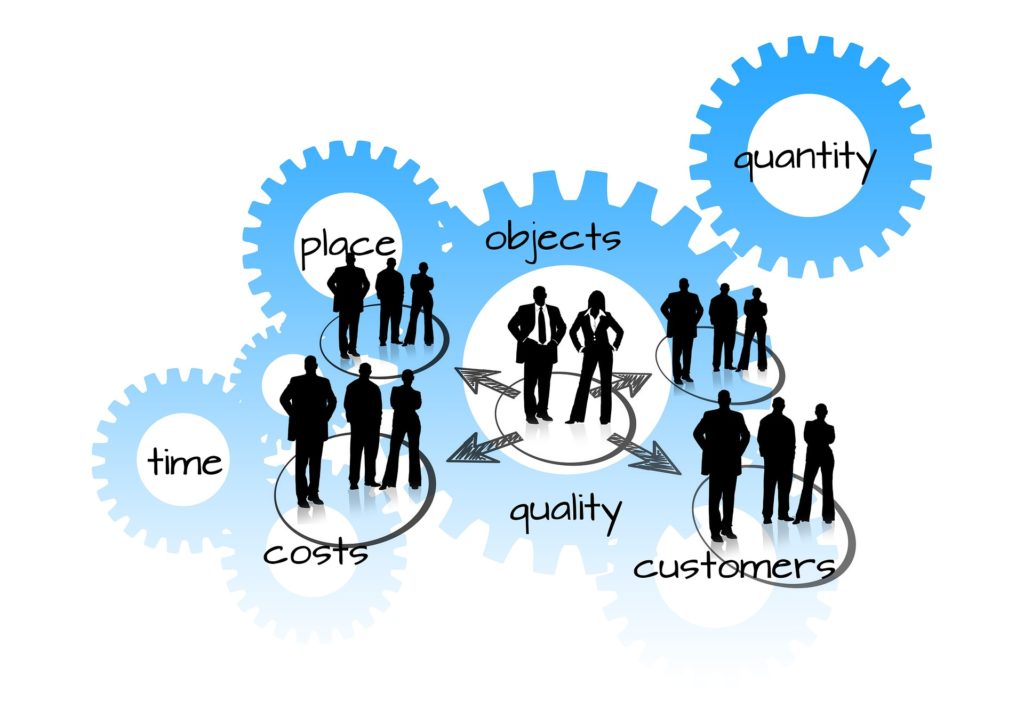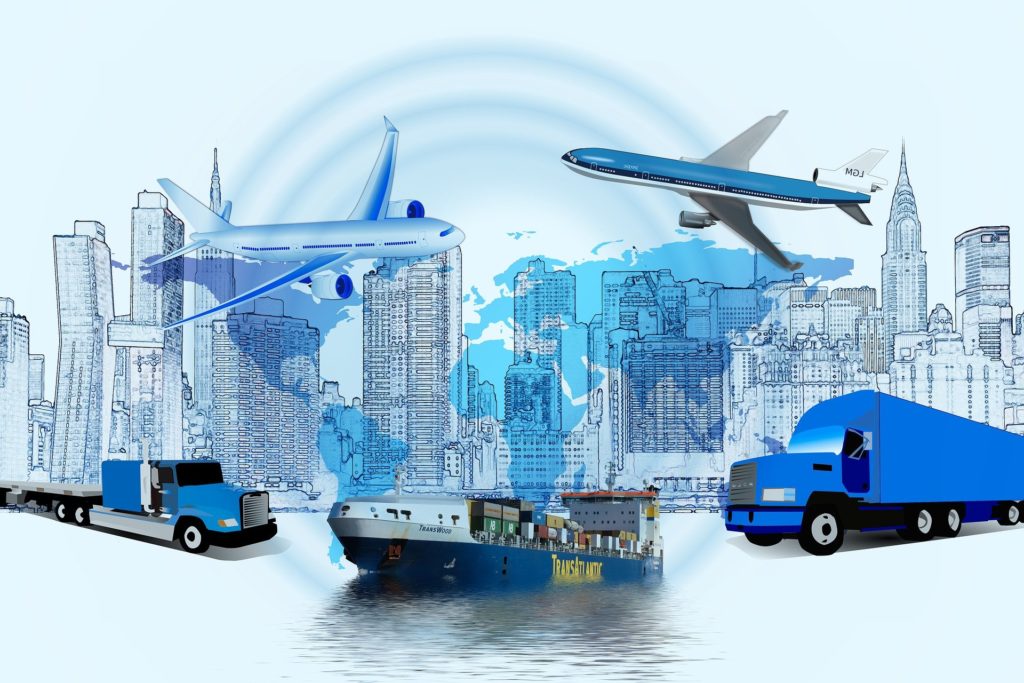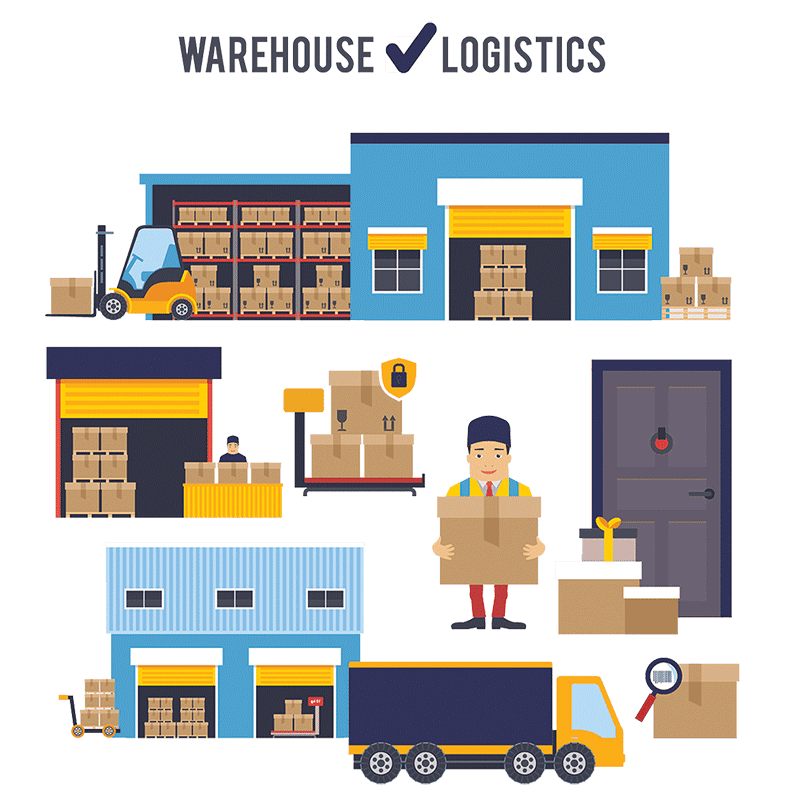What is AI Artificial intelligence
Artificial intelligence (AI) involves creating computer systems that can perform tasks that typically require human intelligence. These tasks include things like learning, reasoning, problem-solving, perception, and understanding and responding to language.

Here’s a breakdown of key aspects of AI:
Goals:
- Replicate human intelligence: AI aims to create machines that can think and act like humans.
- Solve complex problems: AI systems are designed to tackle complex problems that are difficult or impossible for humans to solve.
- Improve efficiency and productivity: AI can automate tasks, analyze data, and make predictions to enhance efficiency in various fields.
Key Concepts:
- Machine learning: Algorithms that allow computers to learn from data without explicit programming.
- Deep learning: A subset of machine learning that uses artificial neural networks with multiple layers to extract complex patterns from data.10
- Natural language processing (NLP): Enables computers to understand, interpret, and generate human language.
- Computer vision: Allows computers to “see” and interpret images and videos.
Types of AI:
- Narrow or Weak AI: Designed for a specific task, like playing chess or recommending products.
- General or Strong AI: Hypothetical AI with human-level intelligence and the ability to understand and perform any intellectual task that a human can.
- Super AI: Hypothetical AI that surpasses human intelligence in all aspects.
Applications:
AI is being used in a wide range of fields, including:
- Healthcare: Diagnosing diseases, developing new treatments, and personalizing patient care.
- Finance: Detecting fraud, managing investments, and providing customer service.
- Transportation: Developing self-driving cars and optimizing logistics.
- Customer service: Providing 24/7 support through chatbots and virtual assistants.
- Entertainment: Recommending movies, music, and other content.
Ethical Considerations:
- Bias and fairness: AI systems can inherit biases from the data they are trained on, leading to unfair or discriminatory outcomes.
- Job displacement: AI-powered automation may lead to job losses in certain sectors.
- Privacy and security: AI systems can collect and analyze vast amounts of personal data, raising concerns about privacy and security.
AI is a rapidly evolving field with the potential to transform many aspects of our lives. It’s crucial to develop and use AI responsibly, addressing ethical considerations and ensuring that it benefits society as a whole.
Artificial intelligence Ai use in transportation and logistics industry

Artificial intelligence (AI) is rapidly transforming the transportation and logistics industry, enabling companies to optimize operations, enhance efficiency, and improve customer experiences. Here are some of the key ways AI is being utilized:
1. Route Optimization and Delivery Efficiency:
- AI algorithms analyze real-time traffic data, weather conditions, and delivery schedules to determine the most efficient routes for vehicles. This reduces travel times, fuel consumption, and delivery costs while improving on-time performance.
- Examples: UPS’s ORION system, Google Maps navigation.
2. Autonomous Vehicles:
- AI powers self-driving trucks and delivery drones, automating transportation and potentially reducing accidents caused by human error. This technology is still under development but holds significant promise for the future of logistics.
- Examples: Tesla’s Autopilot, Waymo’s autonomous vehicles.
3. Predictive Maintenance:
- AI analyzes data from sensors and vehicle systems to predict potential maintenance needs before they occur. This minimizes downtime, reduces maintenance costs, and improves safety by preventing breakdowns.
- Examples: Siemens Mobility’s predictive maintenance systems for railway infrastructure.
4. Demand Forecasting and Inventory Management:
- AI helps predict demand for products and optimize inventory levels in warehouses, ensuring efficient fulfillment and reducing storage costs. This is crucial for e-commerce and supply chain management.
- Examples: Amazon’s use of AI for demand forecasting and inventory optimization.
5. Traffic Flow Optimization:
- AI-powered traffic management systems analyze real-time traffic data to optimize signal timings and traffic flow, reducing congestion and improving travel times in urban areas.
- Examples: Smart traffic management systems in cities like Singapore and New York.
6. Enhanced Safety:
- AI is used in driver monitoring systems to detect signs of fatigue or distraction, helping prevent accidents. It can also be used to analyze traffic patterns and identify potential hazards, improving overall road safety.
- Examples: Seeing Machines’ driver monitoring systems.
7. Improved Customer Experience:
- AI powers chatbots and virtual assistants that provide 24/7 customer support, answer questions, and resolve issues quickly. It can also personalize travel experiences by offering tailored recommendations and travel updates.
- Examples: Delta Air Lines’ use of AI for personalized travel experiences.
8. Smart Parking Solutions:
- AI helps drivers find available parking spaces by analyzing data from connected vehicles and sensors, reducing the time and frustration of searching for parking. This can also help optimize parking management in urban areas.
- Examples: Bosch’s Community-Based Parking solution.
These are just a few examples of how AI is being used in the transportation and logistics industry. As AI technology continues to evolve, we can expect even more innovative applications that will further optimize operations, enhance safety, and improve efficiency in the movement of people and goods.
Artificial intelligence AI in logistics examples

| AI Application | Description | Examples | Benefits |
|---|---|---|---|
| Route Optimization | AI algorithms analyze data like traffic, weather, and delivery schedules to determine the most efficient routes for vehicles. | UPS’s ORION system, Google Maps navigation | Reduced fuel consumption, lower delivery costs, improved on-time delivery, reduced emissions. |
| Predictive Maintenance | AI predicts potential maintenance needs for vehicles and equipment by analyzing sensor data and historical trends. | Siemens Mobility’s predictive maintenance systems for railway infrastructure | Minimized downtime, reduced maintenance costs, improved safety, and prevention of breakdowns. |
| Demand Forecasting & Inventory Management | AI predicts demand for products and optimizes inventory levels in warehouses. | Amazon’s use of AI for demand forecasting and inventory optimization | Efficient fulfillment, reduced storage costs, prevention of stockouts and overstocking. |
| Warehouse Automation | AI powers robots and automated systems for tasks like picking, packing, and sorting in warehouses. | Honeywell’s AI-powered robotic system for order picking and sorting | Increased efficiency, improved accuracy, reduced human error, optimized warehouse space utilization. |
| Freight Management & Carrier Selection | AI analyzes data on carriers, routes, and pricing to optimize freight transportation and select the best carriers for shipments. | Unilever’s use of AI for supply chain visibility and risk management | Reduced shipping costs, improved carrier selection, optimized freight routing, enhanced supply chain resilience. |
| Delivery Optimization | AI helps optimize delivery schedules, delivery routes, and last-mile delivery operations. | AI-powered delivery management systems used by logistics companies | Improved delivery times, reduced delivery costs, enhanced customer satisfaction with efficient deliveries. |
| Customer Service | AI powers chatbots and virtual assistants to provide 24/7 customer support and resolve issues quickly. | AI-powered chatbots used by logistics companies to answer customer queries | Improved customer service, faster response times, increased customer satisfaction. |
This chart provides a concise overview of how AI is being applied in various aspects of the logistics industry. These applications help companies optimize their operations, reduce costs, improve efficiency, and enhance customer satisfaction.
Multiple Benefits of AI Artificial intelligence in logistics

| Benefit Category | Specific Benefits | Description |
|---|---|---|
| Efficiency & Productivity | Improved Route Optimization | AI algorithms analyze various factors to determine the most efficient routes, reducing travel times and fuel consumption. |
| Optimized Delivery Operations | AI helps optimize delivery schedules, routes, and last-mile delivery, leading to faster and more cost-effective deliveries. | |
| Enhanced Warehouse Operations | AI-powered robots and automation systems improve efficiency and accuracy in warehouse tasks like picking, packing, and sorting. | |
| Streamlined Freight Management | AI optimizes freight transportation by analyzing carrier options, routes, and pricing to select the best solutions. | |
| Reduced Operational Costs | By optimizing various processes, AI helps reduce costs related to fuel, labor, inventory management, and overall operations. | |
| Safety & Risk Management | Enhanced Safety Measures | AI-powered driver monitoring systems detect fatigue and distraction, improving road safety and preventing accidents. |
| Predictive Maintenance | AI predicts potential maintenance needs, helping prevent breakdowns and ensure vehicle safety. | |
| Improved Risk Assessment | AI analyzes data to identify and assess potential risks in the supply chain, enabling proactive mitigation strategies. | |
| Customer Experience | Enhanced Customer Service | AI-powered chatbots provide 24/7 support, answer questions, and resolve issues quickly, improving customer satisfaction. |
| Personalized Experiences | AI can personalize delivery and logistics solutions based on individual customer preferences and needs. | |
| Improved Communication | AI enables real-time tracking and updates, keeping customers informed about their shipments and deliveries. | |
| Sustainability | Reduced Environmental Impact | AI optimizes routes and reduces fuel consumption, leading to lower emissions and a smaller carbon footprint. |
| Optimized Resource Utilization | AI helps optimize resource allocation and utilization, minimizing waste and promoting sustainable practices. | |
| Data-Driven Decision Making | Improved Data Analysis | AI algorithms analyze vast amounts of data to provide valuable insights for better decision-making in logistics operations. |
| Enhanced Forecasting Accuracy | AI improves the accuracy of demand forecasting, enabling better planning and resource allocation. |
Pros and Cons

| Feature | Pros | Cons |
|---|---|---|
| Efficiency and Productivity | Increased efficiency through automation of tasks, optimized routes, and improved resource allocation. | Potential job displacement due to automation, especially for roles involving repetitive tasks. |
| Cost Reduction | Reduced operational costs due to optimized fuel consumption, lower labor costs, and efficient inventory management. | High initial investment costs for implementing AI-powered systems and infrastructure. |
| Safety | Enhanced safety through driver monitoring systems, predictive maintenance, and risk assessment. | Concerns about the reliability and safety of fully autonomous vehicles in complex real-world scenarios. |
| Customer Experience | Improved customer satisfaction through personalized services, faster response times, and real-time tracking. | Potential for decreased human interaction and the need for robust cybersecurity measures to protect customer data. |
| Sustainability | Reduced environmental impact through optimized routes and fuel consumption, promoting sustainable practices. | Ethical considerations regarding the use of AI and its potential impact on society and the environment. |
| Data Analysis & Decision Making | Improved data analysis and forecasting accuracy, leading to better decision-making and planning. | Dependence on data quality and the potential for biased or inaccurate outcomes if data is flawed. |
| Scalability & Adaptability | AI systems can adapt to changing demands and scale operations efficiently. | Challenges in integrating AI with existing legacy systems and infrastructure. |
| Innovation & Growth | AI drives innovation and opens up new opportunities for growth and optimization in the industry. | Need for continuous monitoring and updating of AI algorithms to ensure accuracy and effectiveness. |
This chart provides a balanced overview of the advantages and disadvantages of using AI in the logistics and transportation industry. While AI offers significant potential benefits, it’s essential to address the challenges and ethical considerations to ensure responsible and beneficial implementation.
Future Features of AI Artificial intelligence in logistics

AI is rapidly evolving, and its future in logistics appears promising. Here are some potential features and advancements we might see:
1. Enhanced Predictive Capabilities:
- More Accurate Forecasting: AI will likely improve in predicting disruptions, delays, and fluctuations in demand, enabling more proactive and resilient supply chains.
- Hyper-Personalization: AI could enable hyper-personalized logistics solutions, tailoring deliveries and services to individual customer preferences and needs in real-time.
2. Increased Automation:
- Autonomous Warehouses: Fully automated warehouses with AI-powered robots managing inventory, picking orders, and optimizing storage.
- Drone Delivery Networks: Wider adoption of drone delivery networks for faster and more efficient last-mile delivery, especially in urban areas and remote locations.
- Automated Last-Mile Delivery: Autonomous delivery robots and vehicles could become more prevalent for completing the final step of the delivery process.
3. Improved Sustainability:
- Smart Fleets: AI could optimize fleet operations for electric and alternative fuel vehicles, considering factors like charging infrastructure, energy consumption, and emissions reduction.
- Eco-Friendly Routing: AI algorithms could prioritize routes that minimize environmental impact, considering factors like traffic congestion, air quality, and noise pollution.
4. Enhanced Human-AI Collaboration:
- AI-Assisted Decision Making: AI will likely play a more significant role in assisting human decision-making in logistics, providing real-time insights and recommendations to optimize operations.
- Human-Robot Collaboration: More sophisticated collaboration between humans and robots in warehouses and logistics operations, with AI ensuring safety and efficiency.
5. Greater Transparency and Security:
- Blockchain Integration: AI could be integrated with blockchain technology to enhance transparency and security in supply chains, tracking goods and verifying their authenticity.
- Improved Cybersecurity: AI will play a crucial role in enhancing cybersecurity in logistics, protecting sensitive data and preventing disruptions.
6. Advanced Analytics and Optimization:
- Real-Time Optimization: AI could enable real-time optimization of logistics operations, dynamically adjusting routes, schedules, and resource allocation based on changing conditions.
- Prescriptive Analytics: AI could move beyond predictive analytics to provide prescriptive recommendations, suggesting specific actions to optimize logistics processes.
These are just some of the potential future features of AI in logistics. As the technology continues to advance, we can expect even more innovative applications that will further transform the industry and improve efficiency, sustainability, and customer satisfaction.
Summary

Artificial intelligence (AI) is rapidly transforming the logistics industry, enabling companies to optimize various aspects of their operations, from route planning and delivery to warehouse management and customer service. AI-powered solutions are helping businesses improve efficiency, reduce costs, enhance safety, and increase customer satisfaction.
Key applications of AI in logistics include:
- Route optimization: AI algorithms analyze real-time data to determine the most efficient routes for vehicles, reducing travel times and fuel consumption.
- Predictive maintenance: AI predicts potential maintenance needs for vehicles and equipment, minimizing downtime and improving safety.
- Demand forecasting and inventory management: AI helps predict demand for products and optimize inventory levels, ensuring efficient fulfillment and reducing storage costs.
- Warehouse automation: AI powers robots and automated systems for tasks like picking, packing, and sorting, increasing efficiency and accuracy.
- Freight management and carrier selection: AI optimizes freight transportation by analyzing carrier options, routes, and pricing.
- Delivery optimization: AI helps optimize delivery schedules, routes, and last-mile delivery operations.
- Customer service: AI powers chatbots and virtual assistants to provide 24/7 customer support.
Conclusion

AI is revolutionizing the logistics industry, offering numerous benefits such as increased efficiency, reduced costs, improved safety, enhanced customer satisfaction, and greater sustainability. As AI technology continues to evolve, we can expect even more innovative applications that will further transform logistics operations.
The future of AI in logistics is promising, with potential advancements like:
- Enhanced predictive capabilities for more accurate forecasting and hyper-personalization.
- Increased automation in warehouses, last-mile delivery, and other logistics processes.
- Improved sustainability through smart fleets and eco-friendly routing.
- Enhanced human-AI collaboration for better decision-making and safer operations.
- Greater transparency and security through blockchain integration and improved cybersecurity.
By embracing AI and its future potential, logistics companies can gain a competitive edge, optimize their operations, and thrive in an increasingly complex and dynamic global market.
